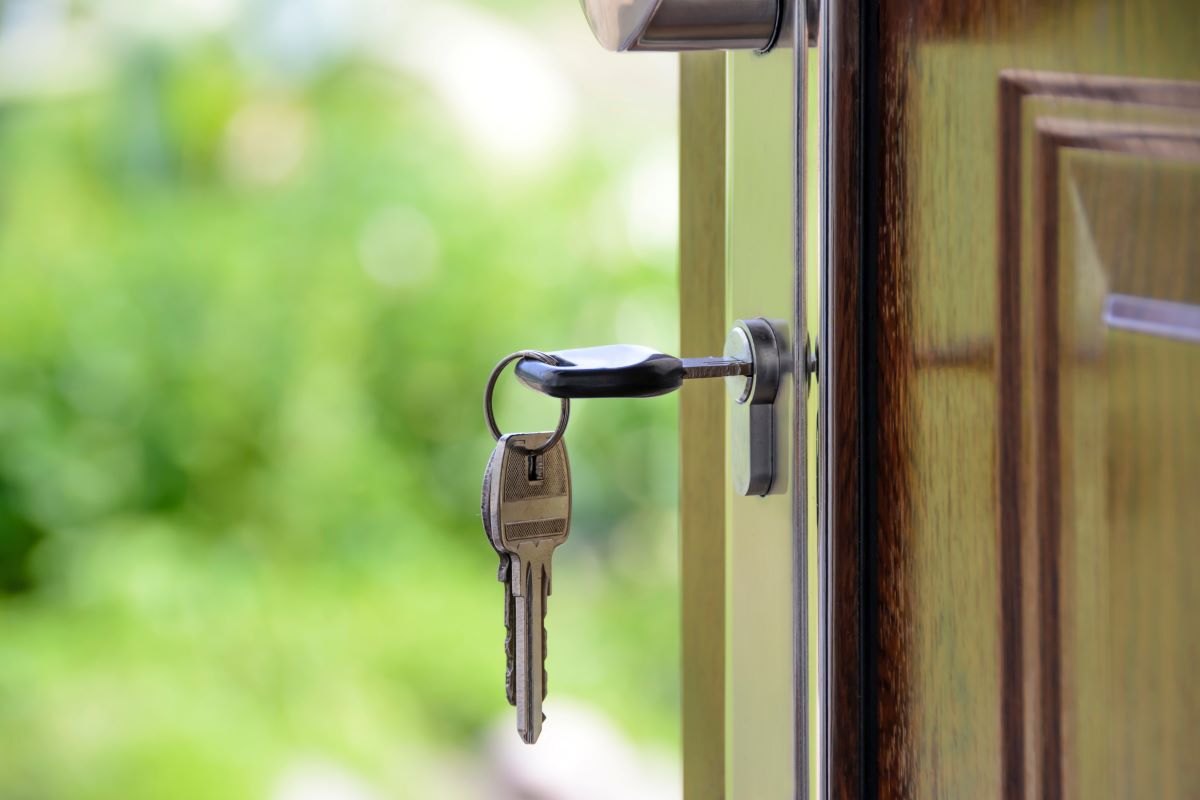
In Australia, there are laws in place to protect you as a tenant (the person renting the property) as well as the landlord (property owner).
As an international student in Australia, you have the same rights as every other tenant when it comes to renting a property. These rights are designed to support a safe and comfortable living environment. Let’s explore them.
Your rights when securing accommodation
When you rent a property through a registered real estate agent, they will follow all the necessary steps to make sure you are protected legally.
If you join an existing share house or rent directly from the landlord (private rental), knowing your legal rights as a tenant will result in a more positive experience.
Listings
When searching for private rental accommodation, double check the address and attend an advertised ‘open for inspection’, or arrange a time to visit the property, to check the accommodation and local area in-person.
When applying for a private rental or joining an existing share house, confirm the identity of the landlord (owner) and check that the person listing the vacancy has the legal right to rent out the room or the property, before you pay any money.
Bond
A rental bond is a security deposit paid at the start of the tenancy. Your bond money should be held by your state or territory’s rental authority, arranged by using the official forms. This will legally protect you and your bond money.
The bond will then be paid back to you when you leave the property, unless you still owe rental payments or if there is some damage that you are responsible for.
Please note: The only fees you need to pay are the bond and four weeks’ rent in advance after you sign the lease (contract). You do not need to pay an upfront fee for things like a “background check” or “inspection fee” before you move in.
Tips!
- If you join an existing share house and one of the tenants (housemate) asks you to pay them the bond directly, this will not protect your money legally – use the proper forms instead. You should also make sure that your housemate contacts the real estate agent or landlord to put your name on the lease agreement.
- If you are renting directly from a landlord in a private rental arrangement, the landlord should ask you to fill out an official bond form. They must lodge the form with the local rental bond authority within 10 days of you moving in to the property and give you a receipt to show this has been done. It is a legal offence not to do so, so ask to see it if it is not provided.
Entry condition report
Your landlord or real estate agent responsible for the property (property manager) must fill out a condition report before you move in. They will then give you a copy so you can check that the report is accurate.
You can make any changes to the condition report and add any notes on noticeable damage to the house, fittings or fixtures, including marks and scratches, and anything that is dirty - inside and outside of the property.
Carefully check the condition of the property as soon as possible after signing the lease and receiving the keys. Checking the condition closely before you move your furniture in will give you a clearer view of any existing damage, or ‘wear and tear’.
When you are satisfied that the report is accurate and complete, you must sign, date and return the report promptly, usually within five business days of moving in. Please allow time for delivery if returning the form by post.
Once received, the agent or landlord must give you two paper or electronic copies of the signed condition report. Both the tenant and the landlord must each keep a copy each of the report until the end of the rental agreement period.
Tips!
- Take a date-stamped photo of any existing damage. You can attach photos to your condition report, or email digital copies, and keep them for the end of your rental period. This will prove that you have not caused any pre-existing damage during your tenancy and make it easier to have your bond money returned in full.
- If your condition report notes anything needing repair, the report provides written notice of this, so your landlord or agent must arrange repairs in a reasonable time.
Your rights as a tenant
Here are some of the most important rights that you should be aware of once you move in.
Right to a safe and healthy living environment
As a tenant, you have the right to live in a property that is safe and in good repair. Your landlord is responsible for ensuring that the property is free from hazards such as mold (caused by a structural problem such a a water leak), asbestos and pests, and that all appliances and fixtures are working.
Right to privacy
The real estate agent or landlord will arrange to inspect the property every 3-6 months. Legally, they must give you at least seven days' notice before entering your home. You can decide whether you are there at the inspection or not.
Right to end the tenancy
You have the right to end your tenancy at any time. There might be two reasons for this:
- Your landlord has violated one of the terms in the lease agreement: If this is the case, contact the rental rights body in your state or territory as listed below to help you either resolve the issue or to leave the property without fees being incurred.
- For a personal reason: If this is the case, you will need to pay fees for breaking a lease early. The amount of fees for breaking a lease will depend on the terms of your rental agreement, so please read it carefully before signing. You may have signed an agreement for a set period (for example, one year), but your agreement may also have options for renewal or move you to a month-by-month agreement at a set date.
Your landlord may also have the right to end your tenancy early. For example, they might want to sell or renovate the home. Check your rental agreement documents to see what the terms are.
When your agreement period comes to an end, the landlord needs to give you 30 days' notice if they do not want to renew the lease.
Right to protection from discrimination
If you believe you have been discriminated against by your landlord, you can contact the Australian Human Rights Commission for advice or one of the legal bodies listed below.
Your responsibilities as a tenant
As well as rights, you also have some legal responsibilities as a tenant. These include keeping the property in a reasonable condition, paying your rent on time and following the terms of your lease agreement.
If you do not meet your responsibilities under the agreement, the landlord or real estate agent can give you a 14-day termination notice and you will need to move out within those 14 days.
Who to contact if you need support
If you believe your rights have been violated, contact the rental rights body in your state or territory:
- New South Wales: NSW Fair Trading and Tenants Advice & Advocacy Services NSW
- Queensland: Tenants Queensland and Residential Tenancies Authority
- Victoria: Tenants Victoria and Consumer Affairs Victoria
- ACT: Tenants’ Advice Service and Access Canberra
- Western Australia: WA Department of Commerce and Tenancy WA
- Northern Territory: Tenants’ Advice Service and Consumer Affairs Northern Territory
- South Australia: Consumer and Business Services (CBS) and Tenants Information and Advisory Service
- Tasmania: The Tenants‘ Union of Tasmania
Get more tips on accommodation
- Can my landlord do that?
- Five rental housing application tips for international students
- How to protect your rights in a share house
Happy house hunting!


